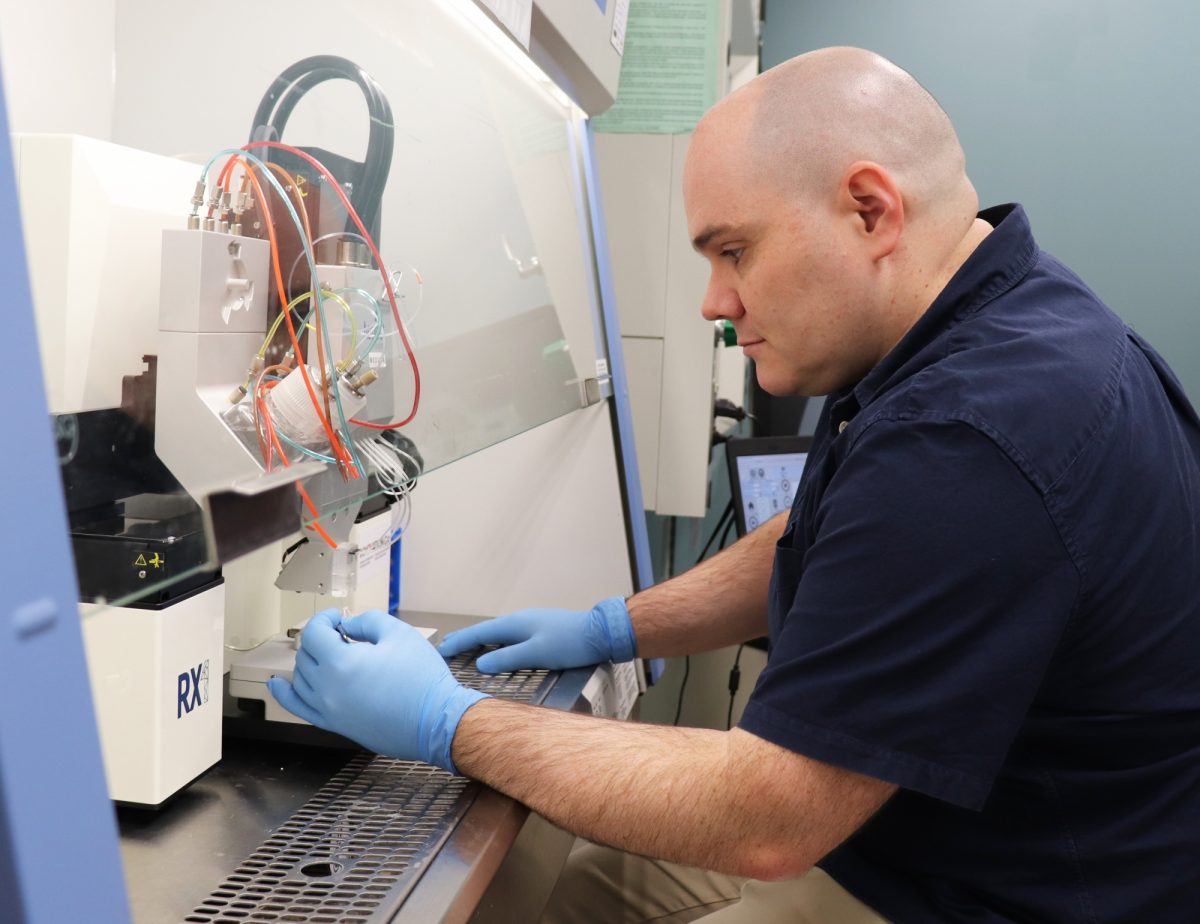
Dr. Adrian West and his team will create heart tissue using this 3D bioprinter to study the development of diabetes.
The Winnipeg Foundation Innovation Fund supports cutting-edge research
Thanks to a grant from The Winnipeg Foundation Innovation Fund, an interdisciplinary team in the Rady Faculty of Health Sciences will create heart tissue using a 3D bioprinter to study the development of diabetes.
Dr. Adrian West, an assistant professor of physiology and pathophysiology, Max Rady College of Medicine, said it is truly an honour for his team to receive the first-ever Winnipeg Foundation Innovation Fund grant.
“The fact that The Winnipeg Foundation has the vision to invest in something like this is fantastic for our program because it really lets us develop these unusual ideas and push them forward to the national level,” he said. “High risk, high reward is always going to be difficult to fund and I think that’s the project we’re doing.”
The Winnipeg Foundation committed $1 million last year to give health sciences researchers at the UM the opportunity to work on innovative interdisciplinary research and develop projects to the point of qualifying for additional external funding.
West is collaborating on the project with Dr. Vernon Dolinsky, associate professor of pharmacology and therapeutics, Max Rady College of Medicine, and Dr. Joseph Gordon, associate professor in the College of Nursing and of human anatomy and cell science, Max Rady College of Medicine. All three are research scientists at the Children’s Hospital Research Institute of Manitoba.
The project, which was awarded close to $100,000, is looking at the origins of diabetic cardiomyopathy, a cardiovascular disease that makes it harder for the heart to pump blood throughout the body and can lead to heart failure. West said this research is important because 80 per cent of people with diabetes ultimately die of heart disease.
The team will build heart tissue using a 3D bioprinter, which creates the tissue by combining cells, biomaterials and growth factors that imitate natural tissue. West said that 3D bioprinting allows them to create a more realistic environment for cells than in a petri dish.
“Cells aren’t flat,” West said. “Cells aren’t squished. Cells are three dimensional in nature and by creating these 3D bioprinted culture models it makes it much like it is in the body.”
They’re building the heart tissue with samples that are exposed to diabetes-like conditions during growth and development to see what underpins diabetic cardiomyopathy. Once they’ve developed a model that replicates the disease, they can test a variety of different treatments and scientists around the world can follow their model.
West said that this research will lead to building tissues with human stem cells. The idea is that they will take a cell from a patient, grow it in a dish, build a piece of their own heart and test a treatment that is personalized to them, he said. It will give them the ability to potentially test drugs and treatments on a patient’s own cells rather than just relying on the results they derive from standard cell cultures and animal models.
Dr. Peter Nickerson, vice-dean (research), Rady Faculty of Health Sciences, said that The Winnipeg Foundation Innovation Fund is unique because it can allow transformative research like West’s to take place.
“It is a bit higher risk, but if it pays off, it really will be not just a couple steps forward, but a leap forward from where we are today,” Nickerson said. “What we’re trying to achieve with The Winnipeg Foundation Innovation Fund is bringing teams together with really innovative ideas. We’ll then give them the seed money to bring that idea to life and see if they can get enough of a launch to then apply for national funding to move it to the next level.”
The Winnipeg Foundation Innovation Fund grant has already helped West’s team with future funding.
“Knowing that somebody had the confidence to fund this project, it’s already strongly advanced our other grant applications,” West said. “Just by The Winnipeg Foundation Innovation Fund grant being available has helped us apply for that grant a year, two years earlier.”
Research at the University of Manitoba is partially supported by funding from the Government of Canada Research Support Fund.






